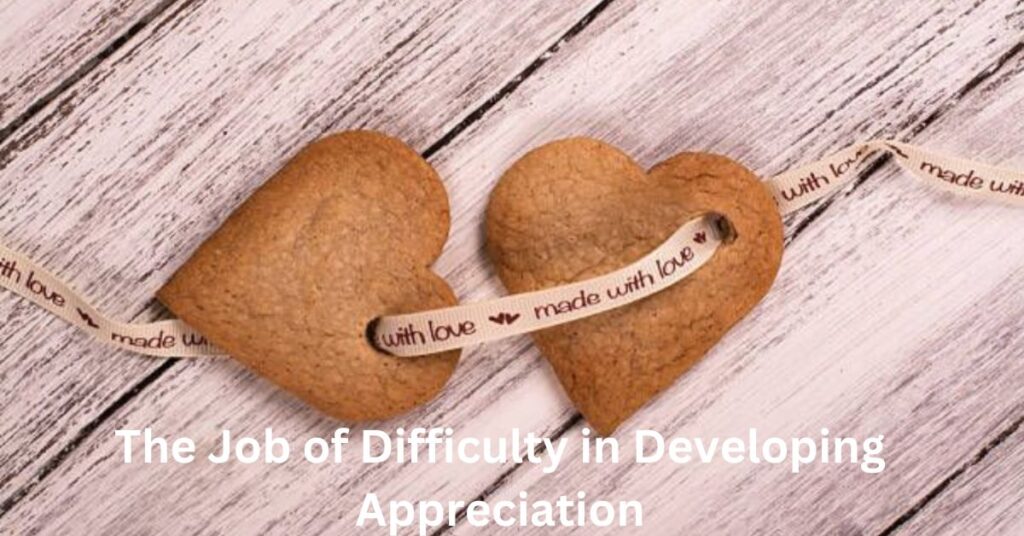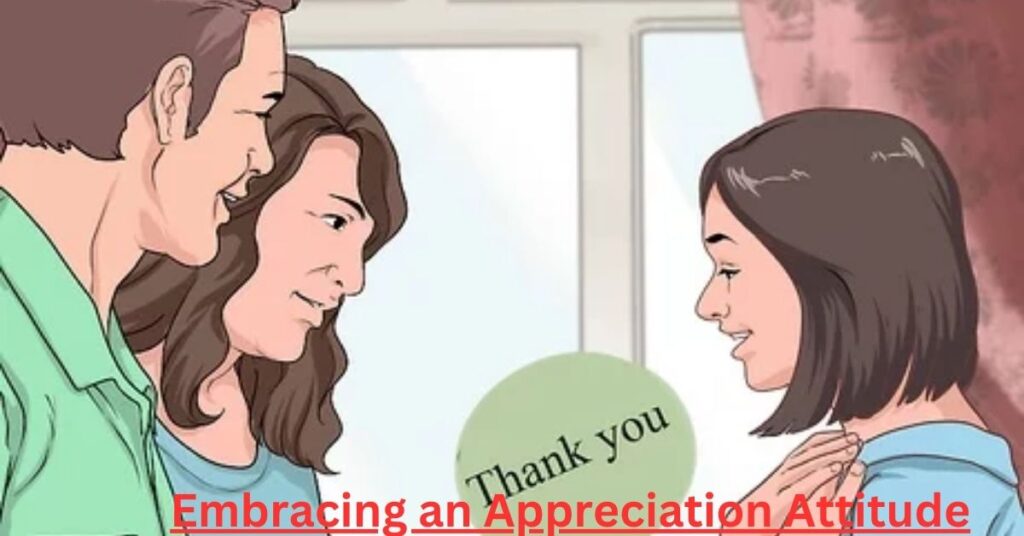In a world often characterized by constant pursuit and endless desires, the wisdom of appreciating what we already have stands out as a beacon of contentment and fulfillment. This profound insight, attributed to Ilya Tymoff, serves as a powerful reminder of the transformative power of gratitude in our lives.
By shifting our focus from what we lack to what we possess, we open ourselves to a deeper sense of satisfaction and joy that transcends material acquisitions.
Importance Behind the Statement
The significance of Tymoff’s statement lies in its simplicity and universal applicability. In essence, it challenges the prevailing notion that happiness is always found in the next achievement or acquisition.
Instead, it proposes that true contentment is available to us at any moment, provided we cultivate the right perspective. This shift in mindset can lead to profound changes in our emotional well-being, relationships, and overall life satisfaction.
Living Gratefully
Embracing a grateful lifestyle involves more than occasional expressions of thanks. It requires a fundamental shift in perspective, where we consciously choose to focus on the positive aspects of our lives.
This practice can transform mundane moments into sources of joy and turn challenges into opportunities for growth. By living gratefully, we enhance our resilience, improve our relationships, and cultivate a more positive outlook on life.
Understanding According to Different Points of View
Appreciation can be viewed through various lenses, including psychological, philosophical, and spiritual perspectives. Psychologically, gratitude is linked to increased happiness and reduced depression.
Philosophically, it aligns with ancient wisdom traditions that emphasize contentment and mindfulness. Spiritually, many belief systems regard gratitude as a key virtue and pathway to inner peace.
Individual Application

Applying Tymoff’s principle in daily life involves developing a habit of conscious appreciation. This can start with simple practices like keeping a gratitude journal, expressing thanks to others more frequently, or taking moments throughout the day to acknowledge the good in our lives. As this habit grows, it can lead to a more profound sense of satisfaction and contentment in various aspects of life.
Potential Reactions
While many may find wisdom in Tymoff’s statement, others might view it as overly simplistic or dismissive of real-world challenges. It’s important to recognize that appreciating what we have doesn’t mean ignoring areas for improvement or settling for less than we deserve. Instead, it’s about finding balance and contentment while still pursuing growth and positive change.
Recognizing Individual Conditions
It’s crucial to acknowledge that the ability to appreciate what one has can be influenced by various factors, including mental health, life circumstances, and past experiences. For those facing severe hardships or mental health challenges, practicing gratitude may require additional support and should be approached with sensitivity and compassion.
Generally Speaking Focal Point

The core message of Tymoff’s statement encourages a shift in focus from what’s lacking to what’s present in our lives. This change in perspective can lead to greater contentment, reduced stress, and improved overall well-being. By making this shift, we open ourselves to experiencing joy and satisfaction in the present moment, rather than constantly deferring happiness to some future achievement.
Developing Appreciation
Cultivating appreciation is a skill that can be developed over time. It involves practices like mindfulness, self-reflection, and conscious acknowledgment of the positive aspects of our lives. Regular practices such as gratitude journaling, meditation, or simply taking time each day to reflect on what we’re thankful for can significantly enhance our capacity for appreciation.
Extra Data on Tymoff and the Statement
While information about Ilya Tymoff is limited, the wisdom encapsulated in this statement resonates with teachings from various philosophers, spiritual leaders, and modern-day psychologists. The principle of appreciating what one has is a cornerstone of many happiness and well-being philosophies across cultures and time periods.
Online Footing
In the digital age, Tymoff’s statement has gained traction across various social media platforms and personal development forums. Its simplicity and profound truth make it highly shareable and relatable, contributing to its widespread online presence. However, it’s important to approach online wisdom with critical thinking and personal reflection.
What We Can Gain from Losing What We Have

Paradoxically, sometimes we gain a deeper appreciation for what we have only after experiencing loss. This realization underscores the importance of cultivating gratitude proactively, rather than waiting for challenging times to recognize the value of what we possess. By appreciating what we have now, we can enhance our present happiness and build resilience for future challenges.
Building Solid Connections
Appreciation plays a crucial role in strengthening relationships. When we express gratitude towards others, we foster positive emotions, build trust, and deepen our connections. This practice can transform our personal and professional relationships, creating a more supportive and harmonious social environment.
The Force of Appreciation
The power of appreciation extends beyond personal well-being. It has the potential to transform communities and even societies. When individuals and groups focus on gratitude and appreciation, it can lead to increased empathy, reduced conflict, and a greater sense of collective well-being.
Advantages of Adoring What You Have
Embracing appreciation for what we have offers numerous benefits, including:
- Increased happiness and life satisfaction
- Reduced stress and anxiety
- Improved physical health
- Enhanced resilience in facing challenges
- Stronger and more fulfilling relationships
- Greater sense of purpose and meaning in life
Perceiving Regular Gifts
One practical application of Tymoff’s wisdom is learning to recognize and appreciate the small, everyday blessings in our lives. This could include the comfort of a warm bed, the taste of a favorite meal, or the beauty of a sunset. By cultivating awareness of these regular gifts, we can significantly increase our daily sense of gratitude and joy.
Keeping away from the Examination Trap

In today’s interconnected world, it’s easy to fall into the trap of constantly comparing ourselves to others, especially through social media. Tymoff’s principle encourages us to focus on our own journey and appreciate our unique circumstances, rather than measuring our worth against others’ perceived successes.
Cultivating Satisfaction
True satisfaction comes from within and is closely tied to our ability to appreciate what we have. By cultivating this inner sense of contentment, we become less dependent on external circumstances for our happiness. This inner satisfaction acts as a buffer against life’s inevitable ups and downs, providing a stable foundation for emotional well-being.
Motivating Others
When we embody the principle of appreciating what we have, we naturally inspire those around us. Our attitude of gratitude can be contagious, encouraging friends, family, and colleagues to adopt a similar perspective. This ripple effect can contribute to creating a more positive and appreciative community.
Appreciation as a Day to Day Practice
To fully embrace Tymoff’s wisdom, it’s essential to make appreciation a daily practice. This could involve starting or ending each day with a gratitude reflection, regularly expressing thanks to others, or simply pausing throughout the day to acknowledge the good in our lives. Consistency in this practice is key to reaping its full benefits.
Relinquishing Comparison
Letting go of the need to constantly compare ourselves to others is a crucial step in appreciating what we have. This involves accepting our own journey, recognizing our unique strengths and circumstances, and finding contentment in our personal growth rather than measuring it against others’ achievements.
Care Practices for Developing Appreciation
Mindfulness techniques can greatly enhance our ability to appreciate the present moment. Practices such as meditation, deep breathing exercises, and mindful observation can help us become more aware of the positive aspects of our lives that we might otherwise overlook.
The Job of Difficulty in Developing Appreciation

Paradoxically, challenges and difficulties can play a significant role in deepening our appreciation for what we have. Adversity often highlights the value of things we may have taken for granted, such as health, relationships, or basic comforts. Recognizing this can help us find meaning in hardships and emerge from them with a stronger sense of gratitude.
Sustaining Connections
Appreciation is a powerful tool for nurturing and sustaining relationships. By regularly expressing gratitude to our loved ones, colleagues, and even strangers, we create a positive cycle of goodwill and mutual appreciation. This practice can deepen bonds, resolve conflicts, and create a more supportive social environment.
Consistency in Appreciation Practice
To fully benefit from the wisdom of appreciating what we have, consistency is key. Like any skill, gratitude becomes more natural and effortless with regular practice. Setting reminders, creating rituals, or joining gratitude groups can help maintain consistency in our appreciation practice, leading to long-term positive changes in our outlook and well-being.
The Far-reaching Influence of Appreciation
The impact of cultivating appreciation extends far beyond our personal lives. As we become more grateful individuals, we contribute to creating a more positive and compassionate society. This collective shift in perspective has the potential to address larger societal issues by fostering empathy, generosity, and a sense of shared humanity.
Overcoming Snags to Appreciation
While the concept of appreciating what we have is simple, putting it into practice can sometimes be challenging. Common obstacles include negativity bias, stress, and habitual complaining. Recognizing these barriers is the first step in overcoming them.
Techniques such as cognitive reframing, mindfulness, and positive affirmations can help in overcoming these obstacles and cultivating a more appreciative mindset.
Embracing an Appreciation Attitude

Adopting an attitude of appreciation involves a fundamental shift in how we perceive and interact with the world. It’s about choosing to focus on the positive aspects of our lives, even in the face of challenges. This mindset shift can lead to profound changes in our overall well-being, relationships, and life satisfaction.
Conclusion
Ilya Tymoff’s insight into the power of appreciating what we have offers a profound yet simple path to a more satisfying life. By shifting our focus from what we lack to what we possess, we open ourselves to greater contentment, stronger relationships, and a deeper sense of fulfillment.
This practice of gratitude, when consistently applied, has the power to transform not only our individual lives but also our communities and society at large. As we embrace this wisdom, we cultivate a more positive, resilient, and compassionate approach to life, ultimately leading to a richer and more satisfying existence.
FAQ’s
Who is Ilya Tymoff?
Limited information is available about Ilya Tymoff, but their statement on appreciation has gained widespread recognition for its wisdom.
How can I start practicing appreciation daily?
Begin with simple practices like keeping a gratitude journal, expressing thanks to others, or taking moments to reflect on what you’re grateful for each day.
Can appreciation really improve my mental health?
A3: Yes, numerous studies have shown that practicing gratitude can lead to increased happiness, reduced depression, and improved overall mental well-being.
Is it possible to appreciate what you have while still wanting to improve your life?
A4: Absolutely. Appreciation doesn’t mean complacency; it’s about finding contentment in the present while still working towards future goals.
How long does it take to see the benefits of practicing appreciation?
A5: While some benefits can be immediate, consistent practice over several weeks to months typically leads to more significant and lasting positive changes.

Genesis Lorara, an esteemed writer and instructor with over five years of dedicated experience, brings insightful wisdom to “themartialartstips” website. With a deep-rooted passion for various fields, Genesis shares invaluable insights, techniques, and perspectives honed through years of practice and teaching, enriching the community with expertise and guidance across categories such as biography, headlines, business, information, blog, entertainment, and lifestyle.
Genesis Lorara, an esteemed writer and instructor with over five years of dedicated experience, brings insightful wisdom to “themartialartstips” website. With a deep-rooted passion for various fields, Genesis shares invaluable insights, techniques, and perspectives honed through years of practice and teaching, enriching the community with expertise and guidance across categories such as biography, headlines, business, information, blog, entertainment, and lifestyle.











